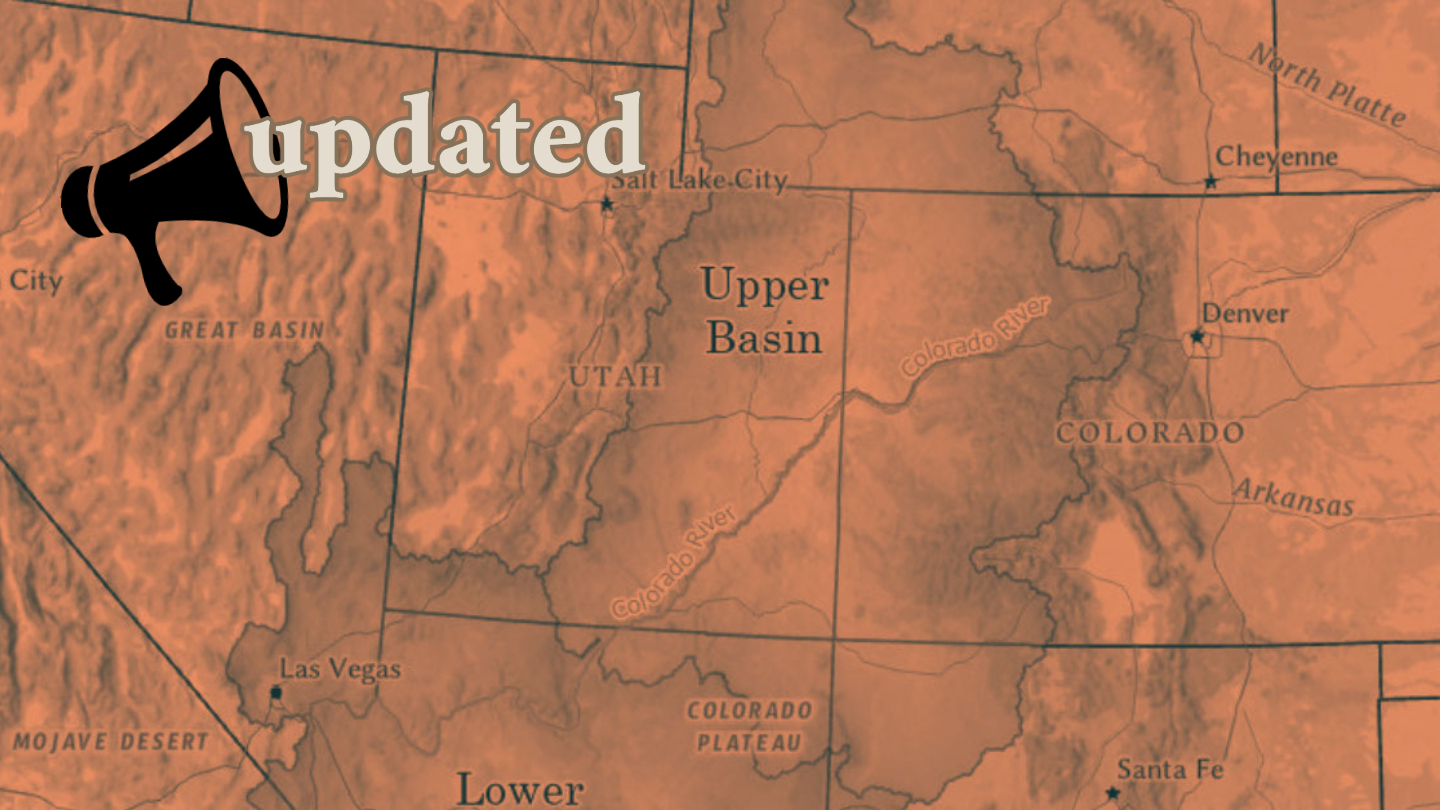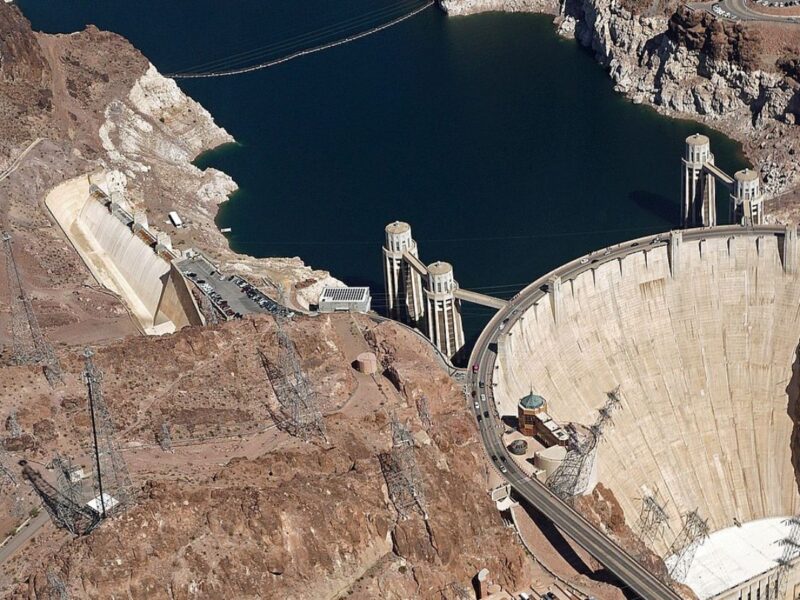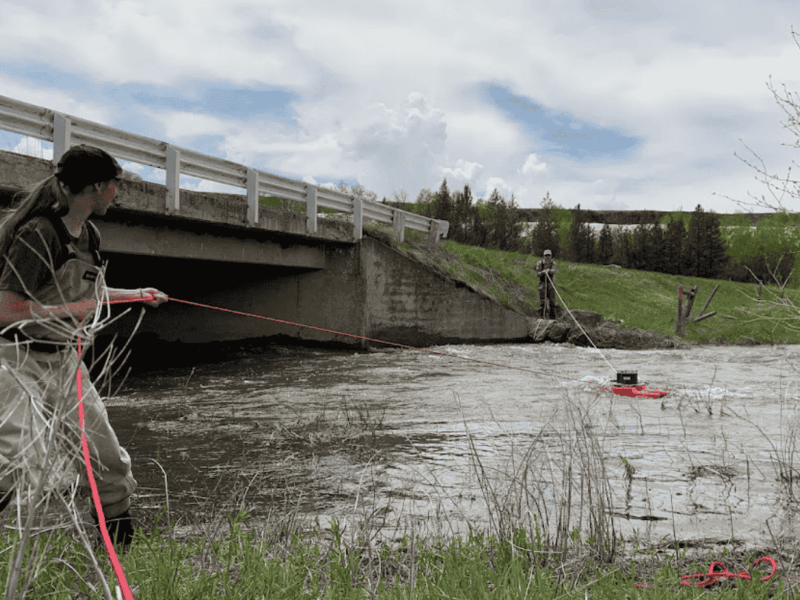What landowners need to know about the 2023 System Conservation Pilot Program
On December 14, 2022, the Upper Colorado River Commission (UCRC) issued a Pre-Solicitation Notice of Request for Proposals regarding a potential funding opportunity for voluntary participation in a System Conservation Pilot Program for 2023 (“UCRC Notice”). The UCRC Notice announced a new 2023 System Conservation Pilot Program (“2023 SCPP”) to address critically low reservoir levels at Lakes Powell and Mead and to combat prolonged severe drought conditions within the Colorado River Basin. Like a previous System Conservation Pilot Program established in 2015, the purpose of the 2023 SCPP is “to conserve Colorado River System water through temporary, voluntary, and compensated measures to mitigate the impacts of ongoing drought and depleted storage in the Upper Colorado River Basin.”
The UCRC Notice invites users of Colorado River water to submit proposals for water conservation projects that result in reduced municipal, industrial, or agricultural consumptive use. Examples of possible SCPP projects listed in the UCRC Notice include: temporary fallowing or deficit irrigation of agricultural crops; reuse of industrial water; recycling of municipal supplies; improvement of distribution system efficiency to reduce consumptive use; reductions in municipal landscape irrigation or indoor use; and other methods that would result in additional water conservation for the Colorado River System in 2023.
The Upper Colorado River Commission/Colorado has extended the deadline for applications until March 1st. UCRC will consider applications submitted after March 1st on a case-by-case basis.
To be considered for participation, 2023 SCPP project proposals must be received by UCRC no later than March 1, 2023 (DEADLINE WAS EXTENDED on January 30th). UCRC’s announcement of the extension opens the door to a rolling application process:
"The extension will allow for additional outreach to Upper Division water users and Tribes, including new opportunities to address questions regarding the program and process. In addition, to more broadly capture innovative water conservation concepts and proposals from all water use sectors and Tribes, the States and the UCRC will consider applications received after March 1st on a case-by-case basis. Our goal continues to be to review and consider projects for 2023 as soon as possible. Projects may be contracted and implemented in calendar year 2023 on a rolling basis depending on the date the proposed project activity begins, and adherence to the criteria established by the Upper Division States acting through the UCRC.
A link to the application for can be found here. Project proposals should be sent to the UCRC at scpp@ucrcommission.com, as well as to the representative of the state in which the proposed project is located at the emails listed below:
- Colorado: Amy Ostdiek (amy.ostdiek@state.co.us)
- New Mexico: Ali Effati (ali.effati@nm.gov)
- Utah: Lily Bosworth (lbosworth@utah.gov)
- Wyoming: Jeff Cowley (jeff.cowley@wyo.gov)
Applicants whose projects have been selected for participation in the 2023 SCPP will be compensated for each acre-foot of water conserved, per the terms of a contractual agreement with UCRC. The announced fixed price in the UCRC Notice is $150.00 per acre-foot of water conserved. Project proponents may propose a higher rate of compensation but must provide the basis and justification in their application for any escalated rates. Who is involved in evaluating and approving applications will vary by region, even within states, and these processes are still being determined. The Colorado River District, which represents 15 West Slope counties in Colorado, for instance, reports that, “we anticipate working with the state to approve/deny applications relevant to our 15-county District. We’re still unclear on what that process will look like, however.”
Program projects will be selected by Upper Basin states, through the UCRC. The UCRC lists several factors to be considered in project selection, including:
- A history of recent consumptive use of Colorado River water by the project proponent;
- Likelihood that the proposed project will mitigate impacts of ongoing drought;
- Diversity of location and type of conservation measures, including consideration of multiple benefits;
- The relative size of the project in terms of acre-feet of water that may be conserved;
- The comparative ease or difficulty in implementing and monitoring the terms of the agreement;
- The amount of time required for the project to generate system conservation;
- Required permitting and approvals, if any; and
- For non-fixed price proposals (i.e., proposals for which applicants are requesting compensation greater than $150/acre-foot), the amount of the proposed price per acre-foot and a justification for the proposed price.
- Each regional evaluator, like the Colorado River District, is also likely to develop additional standards they intend to use to evaluate applications. On Land will provide updates with details as quickly as possible.
For additional information, please consult the following:





